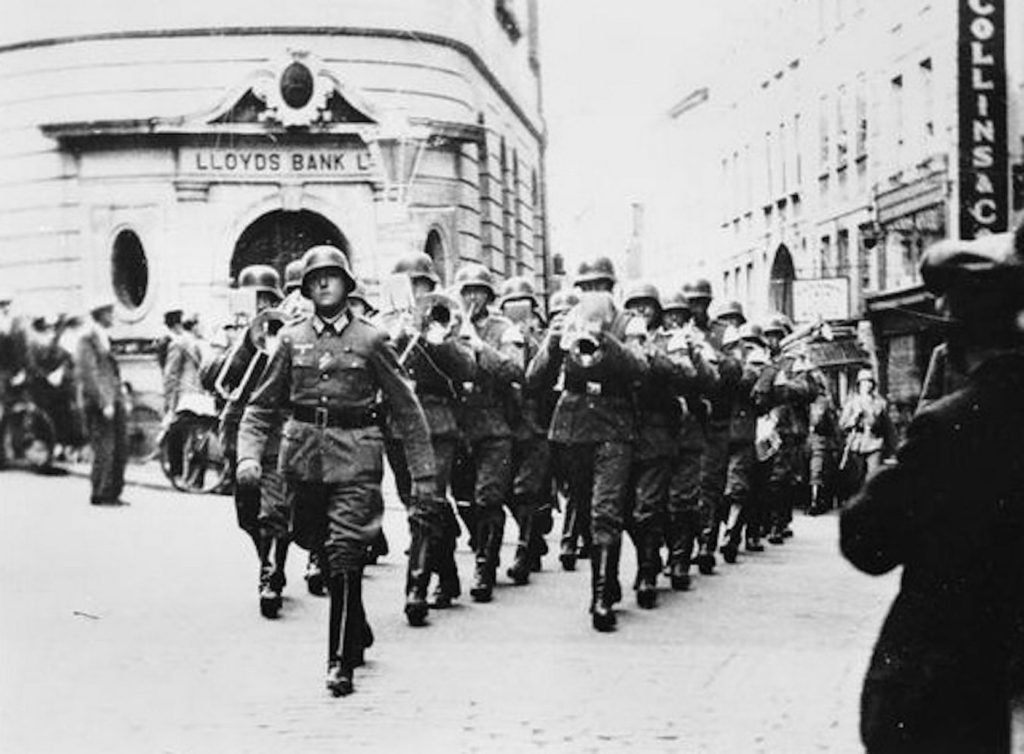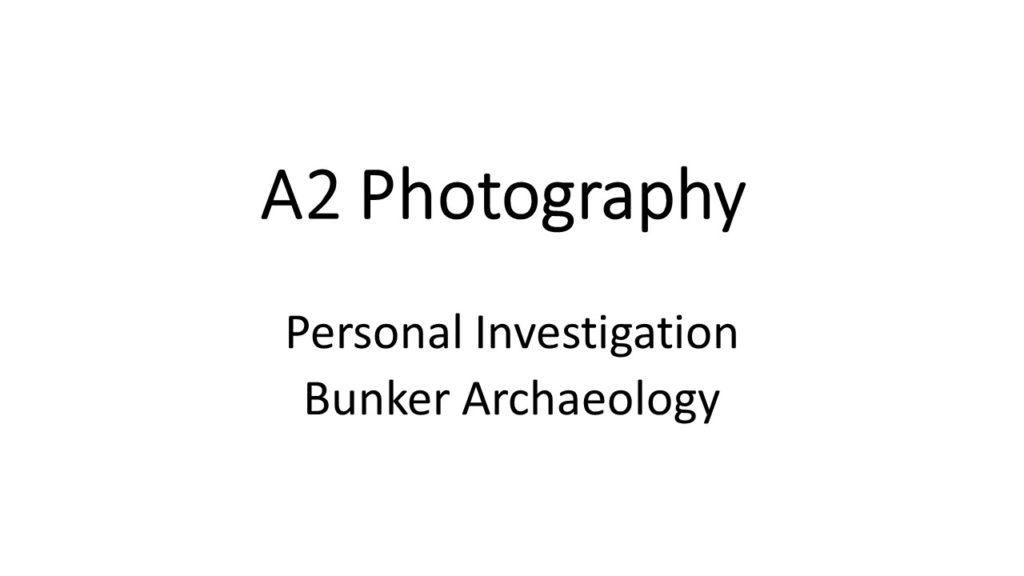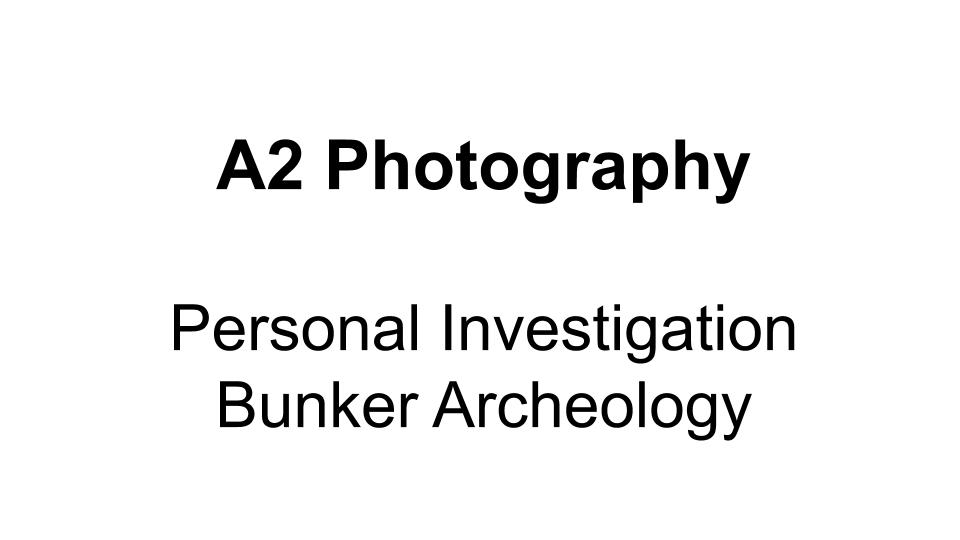A2 PHOTOGRAPHY
PERSONAL INVESTIGATION
BUNKER ARCHAEOLOGY
A2 PHOTOGRAPHY
PERSONAL INVESTIGATION
BUNKER ARCHAEOLOGY

In March 1940, restrictions were lifted on travel to and from the mainland. The Channel Islands were seen as an important tourism centre and a boost to morale for British citizens. On 11 June, 26 Whitley bombers flew from Jersey and Guernsey to Italy to assist the British war effort in the battle of France. By 15 June, France had been lost to Germany and Sir Winston Churchill took the decision to demilitarise the Channel Islands, unbeknown to Hitler. On 16 – 18 June, Jersey Yacht Club assisted in the evacuation of British troops from St Malo but there were no plans to evacuate the islanders. Opinion was divided between the various island governors and in the confusion, each island made its own decision. Alderney evacuated everyone whereas the Dame of Sark instructed her inhabitants to stay. Guernsey began preparations to evacuate its children, giving parents the option to stay or go with them. With time running out, the majority of Jersey islanders chose to stay with just 6,600 leaving out of the 50,000 population.
Unaware the islands were demilitarised, Hitler bombed Jersey and Guernsey on 28 June 1940. Taking possession of a Guernsey airfield, German troops began arriving and by 1 July, Jersey had surrendered. Occupying the islands was a boost for German propaganda and formed part of Hitler’s defence plans for an Atlantic Wall.
On 8 May 1945, the Prime Minister, Winston Churchill, made his famous speech to mark the end of the war. Within it were the words:
“and our dear Channel Islands are also to be freed today.”
However, people in Jersey only officially realised the war was over when they saw HMS Beagle sail into St Aubin’s Harbour on 9 May. Today ‘Liberation day’ is marked with a public holiday for Jersey and Guernsey on 9 May, Sark on 10 May and Alderney on 16 May.
Jersey was one of the only places in the British Isles that was occupied by German forces during World War 2, the occupation took place from 1940 – 1995, being liberated on the 9th May 1945. Whilst Jersey was under the occupation of German forces the people of Jersey faced many changes; they were unable to access as much news from mainland Britain after having permission to utilise radios taken from them, petrol shortages became severe, bicycles were restricted to essential services, vehicles had to be driven on the wrong side of the road, and the island of Jersey was ordered to use a different time zone. During the occupation shopping hours were cut down as food became scarce, food shortages were slightly relieved as the charity the Red Cross began delivering food parcels to the island – but substitutes had to be used, for example, seawater was used in the place of salt. In Autumn 1944, the Autumn before Jerseys liberation, fuel was little to none, this meant that electricity was minimal and there was no gas. Medical supplies were none existent and healthcare was poor. On the 7th of May 1995 Germany had surrendered and the end of war for Europe was announced, on the 8th May 1945 the forces in Jersey received their orders to return to their camps in Portsmouth, and islanders were informed that Winston Churchill would broadcast the nation’s first official announcement that afternoon at 3pm,crowds began to gather at various locations to hear the announcement that would declare their liberation. At 7:15am on the 9th May 1945 on the quarter deck of HMS Bulldog, Second-in-Command for Guernsey, Siegfried Heine, signed the Instrument of Surrender on behalf of the German Command of the Channel Islands, effecting their liberation, as soon as this was completed he was to “immediately cause all German flags and ensigns now flying in the Channel Islands to be lowered”. At midday on the 9th May 1945 Jersey was officially liberated from the five year occupation of German Forces.
– Winston Churchill, 8th May 1945
“unconditional surrender of all German land, sea and air forces in Europe”
– Winston Churchill, 8th May 1945
“our dear Channel Islands are also to be freed today”

A2 PHOTOGRAPHY
PERSONAL INVESTIGATION
BUNKER ARCHAEOLOGY
A2 PHOTOGRAPHY
Personal Investigation
Bunker Archaeology
A2 PHOTOGRAPHY
PERSONAL INVESTIGATION
BUNKER ARCHAEOLOGY
A2 Photography
Personal Investigation
Bunker Archaeology
A2 Photography
Personal Investigation
Bunker Archaeology

